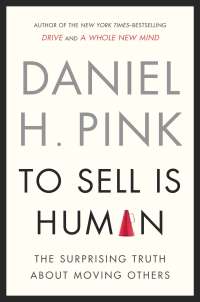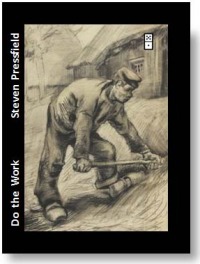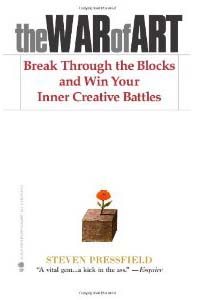 book,
book,  daniel pink,
daniel pink,  marketing,
marketing,  motivation,
motivation,  review,
review,  sales,
sales,  self-help,
self-help,  to sell is human in
to sell is human in  Book Review,
Book Review,  Economics,
Economics,  Resource,
Resource,  Society
Society In the past, I would post only book reviews pertinent to worship, music in the local church, or general Christian leadership and discipleship. Recently, I've been studying many more general topics as well, such as history, economics and scientific thought, some of which end up as reviews here as well.
 Tuesday, February 12, 2013 at 6:27PM
Tuesday, February 12, 2013 at 6:27PM  I was a 20-year old, newly married man. One evening I got a call from a musician friend. Both he and his wife were musicians and church friends. I was excited that he was calling me, and even more that he invited Carol and I to dinner at their house. Wow! It was our first official invitation to dinner as a couple! I remember driving to their house, looking forward to making “couple friends”, eating together and maybe playing some music together that night. We were welcomed with hugs and smiles. We sat down and ate a great dinner and were just beaming with anticipation. After dinner, my friend turned to me and smiled.
I was a 20-year old, newly married man. One evening I got a call from a musician friend. Both he and his wife were musicians and church friends. I was excited that he was calling me, and even more that he invited Carol and I to dinner at their house. Wow! It was our first official invitation to dinner as a couple! I remember driving to their house, looking forward to making “couple friends”, eating together and maybe playing some music together that night. We were welcomed with hugs and smiles. We sat down and ate a great dinner and were just beaming with anticipation. After dinner, my friend turned to me and smiled.
“We have something important to tell you”, he said. Wow, I thought!
“Would you like to be able to take yearly vacations? Would you like to buy Carol nice things, and have extra money for savings and kids later?”, they asked. I was lost. Carol was a customer service trainer at a local airline, and I had just begun my career as a software engineer. We were just beginning, but it seemed like we had what we needed.
“I guess”, I answered, uncertain where this was going, genuinely lost at the turn of conversation.
He smiled, “We’d like to introduce you to Amway.”
If I’ve ever an awkward and empty moment, it was at then. In an instant, the entire experience, invitation and hope of friendship faded. I had become an opportunity for someone to build their downline. Ugg.
I hate sales. I am the ultimate anti-sales person. I hate anything that smells like sales. Not sure if I am being clear here. Sales = yuck! And I suspect that as you read my brief story above, many of you could relate similar experiences from your own life. In the context of the modern economy, sales seems like an all pervasive “necessary evil” of our world. It is from that perspective that I hesitantly began reading Daniel Pink’s “To Sell Is Human”.
The truth is, the only reason I even dared to consider reading this book was that several customer reviews of it lauded it as a “non-sales” understanding of the art of persuasion. Sales without decept. It seemed too good to be true. So, the eternal optimist that I am, I peeked inside and found this book to be a delightful example of what Pink preaches- learning to move people. There was indeed a way to commend people to a certain direction without leaving your conscience at the door.
At the core of Pink’s thesis is that you must always approach convincing people with deeper notions than simply selling wares and collecting commissions. In fact, understanding the motivation of “sales” is more crucial than the execution. Pink states it this way:
To sell well is to convince someone else to part with resources— not to deprive that person, but to leave him better off in the end. 1
From that foundation, the author treks through a number of other pinnacles of his new “sales” paradigm that re-envision persuasion by trying to help others. This means approaching your “job” (even if it is called “sales”) by inquiry and investigation rather than determination and demand. For example, an important step is asking people what their goals are not to try to do an “end-round” and force the issue back to a sale, but to find out how to help meet their needs, even if the “product” you are selling doesn’t happen to fit this time around. Even the “salesman” motivational techniques change from deterministic self-hype to interrogative self-talk: asking questions about yourself as preparation for a customer meeting.
Finally, even the “after the sale” approach is completely different. Pink says it well:
Anytime you’re tempted to upsell someone else, stop what you’re doing and upserve instead. Don’t try to increase what they can do for you. Elevate what you can do for them.2
The whole personality and attitude approach in sales reverses course from being the pushy schmuck in a plaid coat to an approachable acquaintance who is there to help. The book highlights, of all things, humility!
And it demonstrates that as with servant leadership, the wisest and most ethical way to move others is to proceed with humility and gratitude.3
Throughout the book Daniel Pink shows a new set of ABC’s for selling. In the old world of sales it meant “Always be closing”. In today’s landscape of information ubiquity, the ABC’s of sales means “Attunement, Buoyancy, Clarity”. In these, Pink re-examines why the internet has changed the world of consumer purchasing into a place where the seller no longer holds an information advantage over the purchaser. The entire book is devided in three main parts: the first is a 3 chapter section exploring the redefinition of many terms that once ruled sales and the people involved. The second section is based in inquiry- investigating and understanding the needs of the customers (where we discover the new ABC's). The final section explores actions- that we engage in to help our customers (pitch, improvise and serve). The sections are clear and points strong. There is little fluff in this 260 paged book, and it goes by fast.
Another very powerful insight that Daniel Pink makes is the research about what kinds of people are truly successful sales-people. And it is not the pushy extroverts that has been the conventional wisdom! Without making up some incoherent or recursive logic about why some personalities sell better than others, Pink brilliantly explores the truth about why we trust some people and buy from them. The new world of “ambiverts”. As someone who is not an “extrovert”, this was a gem in the book for me!
If I had to summarize the book’s approach in one word, the new world of sales is about: serving.
The book is much more scholarly than other sales motivational books I’ve seen, and contains a well-thought set of studies to help explore the main points Pink makes. He has done his research and it is convincing and insightful. I was more than impressed by this brilliantly sculpted, inspirational and (yes) humble approach to sales.
If you are not a hyper-psyched, extroverted, type-A personality, but know that you are needing to be better at “sales” (or moving people to make decisions), this book is for you! It was for me, and I can’t recommend it highly enough. Really! Check it out!.
Amazon Book Link: http://amzn.to/14RcjAi
Review by Kim Gentes
1. Pink, Daniel H. (2012-12-31). To Sell Is Human: The Surprising Truth About Moving Others (p. 39). Riverhead Hardcover. Kindle Edition.
2. Ibid., Page 226
3. Ibid., Page 228
 book,
book,  daniel pink,
daniel pink,  marketing,
marketing,  motivation,
motivation,  review,
review,  sales,
sales,  self-help,
self-help,  to sell is human in
to sell is human in  Book Review,
Book Review,  Economics,
Economics,  Resource,
Resource,  Society
Society  Saturday, December 29, 2012 at 7:33AM
Saturday, December 29, 2012 at 7:33AM  After reading Steven Pressfield's "The War of Art", I jumped at the get-it-done companion called "Do The Work".
After reading Steven Pressfield's "The War of Art", I jumped at the get-it-done companion called "Do The Work".
There are two reactions to it that must be clear. First, if you are a technical person who is not a natural creative- this book is perfect for you. Second, if you are a natural creative who has too many ideas and not enough completed projects- this book is also for you. The problem is, you must digest it with the right understanding of who you truly are. Let me explain.
Pressfield's approach is attuned mostly to technical people who don't trust their creative juices. This group of people understands the nuances of self-criticism, evaluation, re-writing and more. What they struggle with is that they over-analyze and over-prepare so much, they become weighed down by the weight of this mind-heavy preparation and either never start the project in earnest or become crushed under their self-criticism. Pressfield has excellent advice that will allow those people to properly set aside self-critism to a proper time in the process. The goal for them is to get them moving and trusting the creative process and ideas in them.
For the truly creative person with little ability to filter and less ethic to complete a project, "Do The Work" lays out a plan that they can take advantage of their creative juices but put meat on the bones before the next wind blows in and grabs the creative's attention away from their current work. For those people- read the book, and do the work. Follow the instructions and channel the inspiration as told by the author.
The problem with this book is that the technical or creative person may well misunderstand who they are and not approach this kind of advice properly. The book is solid, but it doesn't help the reader distinguish how to navigate their absorption of the material. Hence, I see several reviews of this book from what I call "high technicians" (people who aren't true creatives) who criticise the book for encouraging people to follow their instincts. But true creatives should ignore those reviews. This book is easily interpretted for true creatives and they can take the writer at face value and follow instructions as stated. For technicians (who often erroneously think they are creatives), you should realize that you will automatically have the tools of self-criticism and correction that will allow you to make the detail and methodical adjustments that every project needs in the revision phase- don't misinterpret Pressfield's guidance to let the inspiration "flow" in the beginning of the creative cycle sound like "throw caution to the wind" for the entire process. A proper reading of hte book and self-awareness and sel-understanding will make this clear.
Personally, I came away with 2 excellent and helpful tips from the book. Important things that I will never forget and have already begun to use. Because Pressfield assumes that deeply creative people will be the users of his book, he doesn't take time to nuance how the book should be approached. I felt this might help some of those who were coming at "Do The Work" from a couple different vantage points.
In light of that, it's a very good book and I highly recommend it.
Amazon Book Link: http://amzn.to/Wbs0M0
Review by Kim Gentes
 Thursday, November 29, 2012 at 5:10PM
Thursday, November 29, 2012 at 5:10PM  I don't like motivational junk. I call it crap. When people try to sell me their wares as a way of "encouraging" me in some way it just doesn't sit right with me. For that reason, you have to understand that I would never in a million years have purposely went to buy this book. I thought I was buying a book about being a writer and some "tricks of the trade". But about 10 pages into it, I realized I'd been duped. I was kinda upset. (Keep reading! I was missing the point!) But since I had already bought it and simply wanted to put it away, I figured I'd better get through it.
I don't like motivational junk. I call it crap. When people try to sell me their wares as a way of "encouraging" me in some way it just doesn't sit right with me. For that reason, you have to understand that I would never in a million years have purposely went to buy this book. I thought I was buying a book about being a writer and some "tricks of the trade". But about 10 pages into it, I realized I'd been duped. I was kinda upset. (Keep reading! I was missing the point!) But since I had already bought it and simply wanted to put it away, I figured I'd better get through it.
That was the last point at which I didn't like the book. In about 2 more pages (and for the rest of the book), I got my butt kicked. Author Steven Pressfield talks as a creative person to other creatives, and tackles just one topic- resistance. This is the singular name that Pressfield gives to the demon that haunts every person who ever tried to do anything beyond themselves- in art, science, culture, business and life. Pressfield defines, explores, warns and outright swears at the demon of resistance. Pressfield is ticked off, and he wants his reader to join him- not in a soppy emotional healing time, but in an outright strategy of war against the only enemy likely to stop you from creating your unique art: your own internal resistance.
I've heard these concepts before in different ways, but they've never struck home as well as they have here. "The War of Art" is not only sharp and pointed, it is blissful and witty. It examples its content by explaining how the author himself got passed resistance to even write the book. It's not cute, but it is effective, and funny, too!
If you hate motivational speeches and don't want to waste money on feel-good crap, this book is the best thing for creatives since their mom slapped them up the side of the head and said "do your homework".
The book is short (just 190 pages) and it is written directly to authors, painters, musicians, creatives, entrepreneurs, inventors and anyone who is trying to start something (anything) of value that is significantly challenging. This book is written from an artist/writer's perspective specifically, not of the Christian "self-help" variety, and if you are easily offended by occasional swear words, you may find this book hits you with occasional bursts of Pressfield's verbal punches.
That said, it's a great book and I very highly recommend it.
Amazon Book Link: http://amzn.to/Simc47
Review by Kim Gentes
 Steven Pressfield,
Steven Pressfield,  The War of Art,
The War of Art,  artists,
artists,  author,
author,  book review,
book review,  going pro,
going pro,  motivation,
motivation,  pressfield,
pressfield,  writer,
writer,  writing,
writing,  writing techniques in
writing techniques in  Art,
Art,  Book Review,
Book Review,  Creation,
Creation,  History,
History,  Literature,
Literature,  Writing
Writing